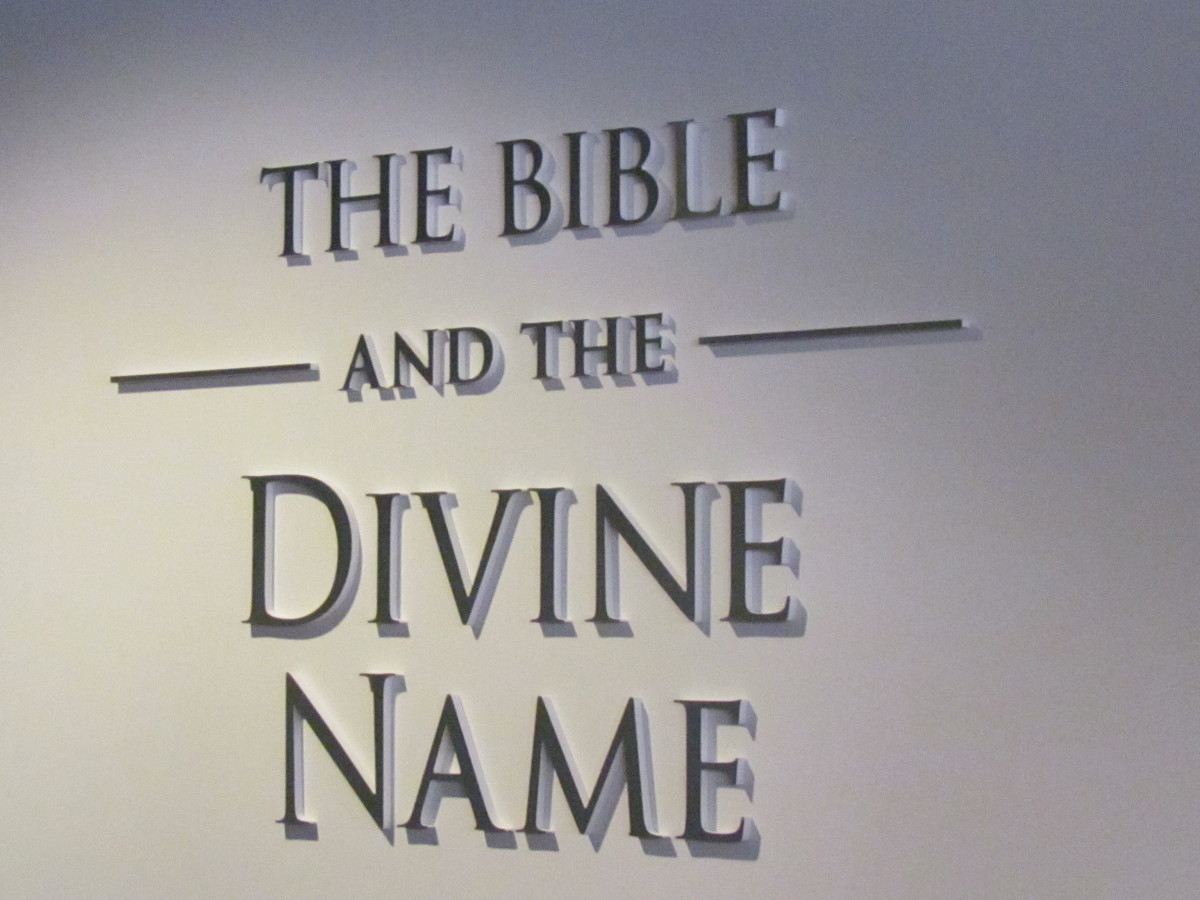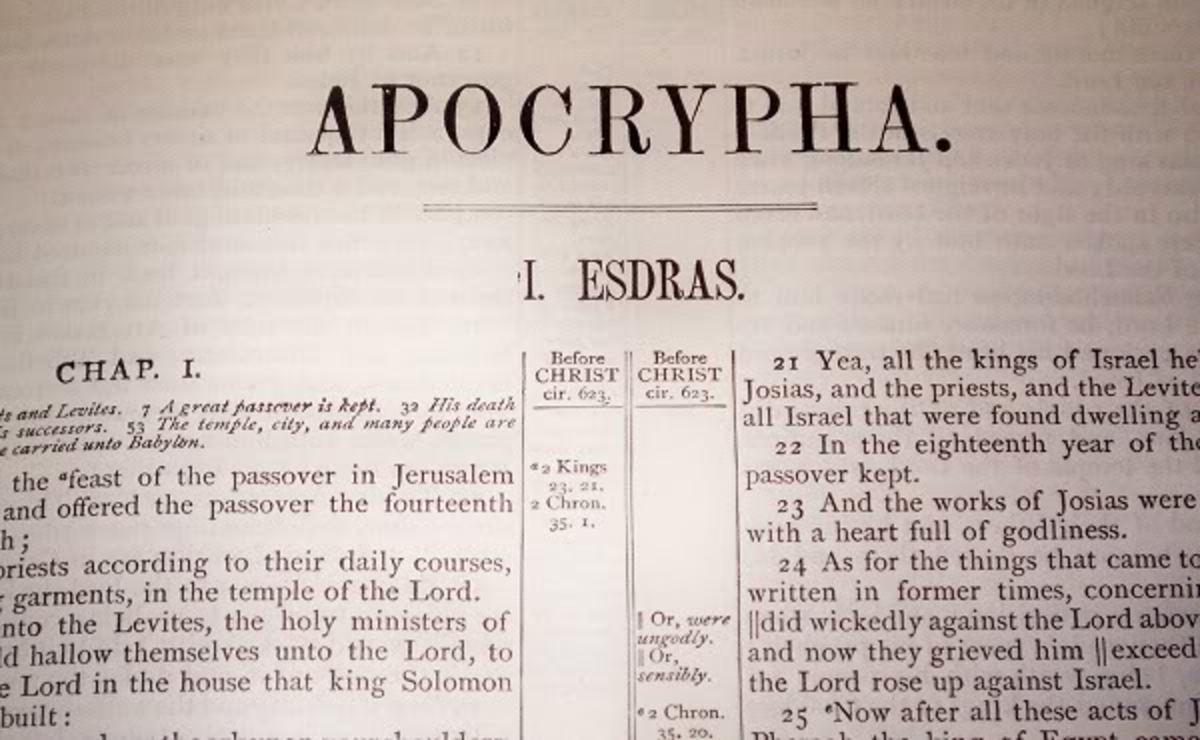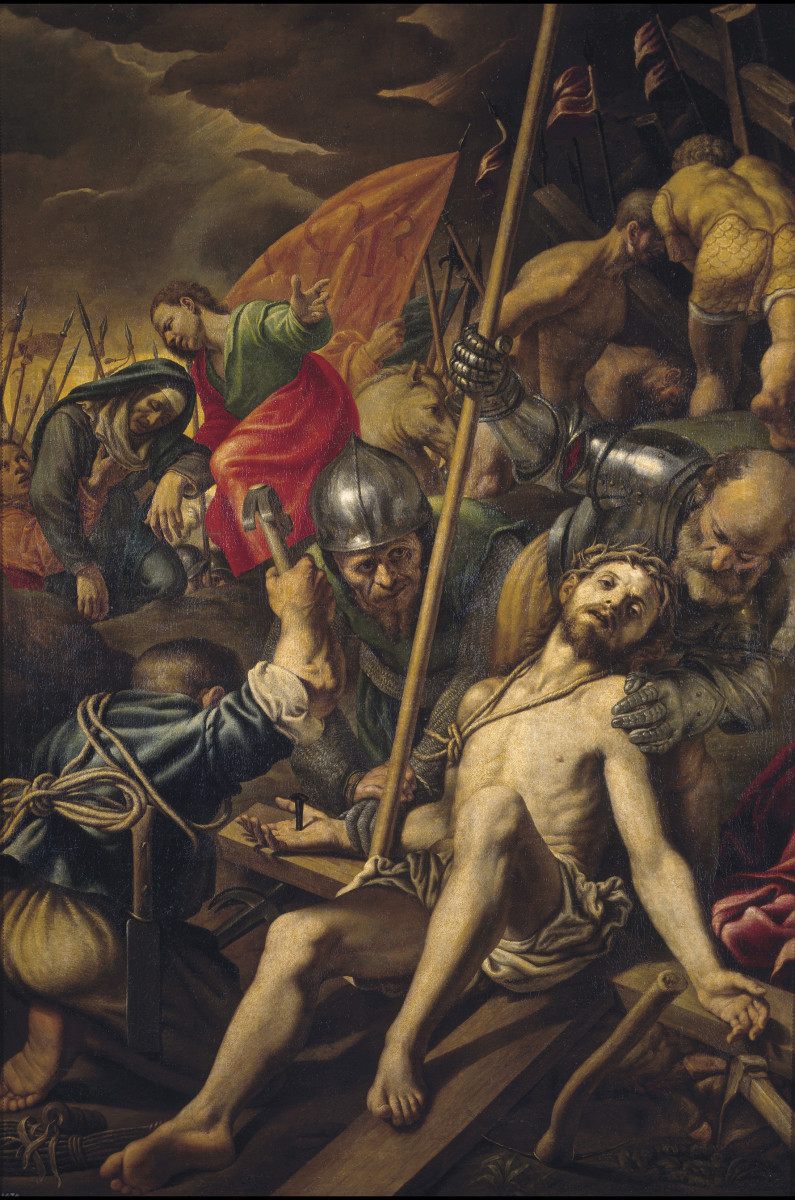The Christian & Private Study - How To Study The Bible

This is not textbook stuff, I'm not passing on classroom lessons - my interest here is to share with you the approach and some of the methods that have helped me through the years to gain a better and better understanding of what the Bible presents as the truth. I've no doubt some suggestions here will be obvious to many, some I've come to by trial and error, and some are well established as sound study methods.
We must start with the preliminary consideration of just what the Bible is and why we should study it. First, let me establish, I am writing these hubs for Christians, so I will not be arguing for the validity of or defending or providing evidence of the spiritual reality manifest in the Bible - writing to and for Christians, I will proceed under assumption of some recognized truths. Starting with the truth that, the Bible is God's own revelation of eternal truth.

There are several popular 'heartwarming' approaches to the Bible offered today; some suggest the Bible is our instruction book for life, some describe it as a love letter from God, some say it is our owner's manual telling who we are and how we operate. All these carry some bit of truth, but they are not setting the Bible before us as what it factually is - the Bible is a story. Now, don't take that statement to imply that the Bible is fiction, it is a true story. The Bible is record of events and people that tell the story of Jesus of Nazareth. If you don't open the Bible knowing Jesus and seeking to find Him in it's pages, the Bible will seem to make little sense to you, it will appear to be filled with contradictions and likely seem confusing.
Jesus rebuked the pharisees "You search the Scriptures because you think that in them you have eternal life; and it is they that bear witness about Me". In the very beginning, in the first pages of the Bible, the promise that a Messiah born of a woman would come is given, and all that follows is preparation for that event. And when Jesus is born, Scripture refers to that event as "when the fullness of time had come, God sent forth his Son, born of woman". That "fullness of time" was when all the preparations were complete; the calling of Abraham, the giving of the law, the establishment of the temple, etc, etc, all are parts of the unfolding story of the promised Messiah and the coming of Jesus.
As this story is told, along the way we learn truths about God and ourselves, we learn rules for right conduct, we are encouraged and admonished, etc - but if we fail to approach the Bible as it is, an account of who Jesus is and what He did, then we are missing the whole point. This isn't a gushy plea to always have Jesus in your heart and keep Him with you as you study each page - this is practical instruction; if you approach the Bible like it's purpose is to give you direction and make you feel ok with yourself and to succeed and find happiness in life, then you are not going to get the real direction and genuine aid that it provides . . . "You search the Scriptures because you think that in them you have eternal life; and it is they that bear witness about Me".
So, very generally, the fruitful study of the Bible is first advanced by recognizing that it is one unfolding story and that story is the story of Jesus, who He is and what He did. The beginning of the story, Genesis, tells us what happened that Jesus is promised, why we need Him. Then the story proceeds in preparing the way for His coming, preparing us for His coming; separating one family, one people, to keep and share the story of preparation and the promise of His coming. The giving of God's law to demonstrate to us our need for Him to come. The establishment of a kingdom to portray to us His role as king and protector and provider. The provisions of the temple, the sacrifices, the picture of how Jesus fulfills that first promise of a Savior to come.
Then His coming, the incarnation and the accomplishment of His sacrifice. Then the body, the bride, the church, His people and how His Spirit continues in them until His return and the resolution of the story. From beginning to end, through the Old Testament (as the promised Savior, King, the provided sacrifice, etc) to the New Testament (as the promised Savior, the King, the provided sacrifice, etc), the Bible is the story of Jesus, who He is and what He did . . . and so, can only be rightly understood if it is recognized and studied as such.

Now, as the Bible is not first or essentially a how to instructional manual for life or a love letter word of encouragement from God, but is a story, a record of events, it is crucial to know the story, to understand what it is that is being told. That might seem an obvious assertion but, especially today, so many come to the Bible for application first, the 'what does it mean to me' and 'how can I make this real in my life', approach will not only miss the actual point of the story, but will miss the real application as well.
The best, most fruitful way to study the Bible is to seek to discover what those it was originally written to understood it to be telling them. The Bible is revealed eternal truth, it is written to all of us - but the actual (say) letter to the Galatians that Paul wrote was written to the Galatian church, to those particular people about specific things at that time pertaining to them. The best way we can understand the truths in that letter that we can then apply to our own lives and circumstances, is to understand what was being said to those people when that letter was written to them. So . . .
The basic first guidelines I would encourage folks to follow are ~
-
disregard chapter & verse
The text of the Bible was not written in the chapter and verse form it is published in today - it was written, as a letter, without numbered chapters and verses. The chapter and verse divisions and numbering were added much later as reference points. Those reference points are handy, I'm not suggesting it is bad or wrong that our Bibles today have chapter and verse divisions, I'm only saying it will aid you in your study if you disregard these man-devised breaks and divisions.
-
read like any other book
This might sound an odd guideline from one who counts the Bible to be the uniquely inspired and inerrant word of God, the only source of authoritative truth. As the Bible is unlike any other book in this regard, how can it be wise and profitable to read it as you would any other book? The answer is, because it is a book. Whatever the content, whoever the author, whatever the eternal significance of it's content, it is still presented in the form of a book . . . words that mean what they do mean and do not mean what they don't mean, ordered together in a fashion to articulate the specific idea they are meant to convey.
The popularly repeated notion that anyone can make the Bible say whatever they want it to say is simply observably untrue. If we treat the Bible as something other than a book that, like any other book, has something to say and says it, if we pull 'this' bit from one place and 'that' portion from another, if we use it as some kind of disjointed reference of disconnected ideas, then you can make it appear to say something it isn't really saying - and if we attach a number to every so many sentences in "Gone With The Wind" and read chapter 8 verse 23 together with chapter 14 verse 3, we could argue that Rhett Butler was unable to resist Scarlett O'Hara and that she had him right where she wanted him . . . but of course we know, that is not the whole story and that in the end Butler does indeed resist her and she doesn't at all have him right where she wants him.
We must read the Bible knowing that what we are reading is revealed truth, and that regardless of any inclination to resist it's teaching, we must change our thinking to reflect the authoritative eternal truth it reveals to us - however, the way to understand what that truth it reveals is is to read it as a book, not as a collection of wise sayings or a set of esoteric clues to the mysteries of life, but as it is, an unfolding story.
-
recognize the different forms of literature
The Bible was written over generations, by kings and by fishermen, and a variety of literary forms were used to tell the story. The Book of Hebrews, one of the last books of the Bible to be written, tells us "Long ago, at many times and in many ways, God spoke to our fathers" . . . we can't read the 'many ways' all just the same. Some portions of the Bible are history, some are poetry, some parable & allegory, didactic teaching, etc, and they must be read as the form of literature that they are.
A basic but very consequential illustration and bit of advice on this point; some have asserted that Genesis must have been written, not by Moses, but by various other authors because there are two different accounts recorded of the creation of man . . . chapter one records one version of God creating man and then in chapter two there is another account of God creating man. The conclusion that this demonstrates two different records by two different authors comes from taking one part from 'here' and another from 'there' and trying to make sense out of them without a familiarity with ancient Hebraic literary forms.
There are numerous accounts of Hebrew literature outside of Scripture, and later even Paul follows his own Hebrew training, of first setting forth the idea that you will then return to in greater detail . . . in chapter one of Genesis God simply announces that He will make man in His own image, then in chapter two the details of God breathing life into a body formed out of the dust of the ground and placing man in a garden, etc, are presented. This doesn't evidence two different accounts by two different authors - it is a well-established Hebrew literary form.
That's an illustration of how recognizing the various literary forms the Bible uses can be helpful to rightly understand the text - now the basic but very consequential bit of advice on this point; the Bible is not a book of doctrine, again, it is a story, the record of an event . . . doctrine is the gathered together and defined ideas we draw from Scripture. Jesus is God incarnate, He is the God of creation, the God of Abraham - but the Bible doesn't say that, not like that, like a doctrinal statement . . . the Bible tells us Jesus is God when it tells us that He was not born of man but of the Holy Spirit, when Jesus declares that before Abraham was He (Jesus) eternally is, when we see Him forgive sin, etc, etc. We take all those ideas and understand them together as revealing to us the divinity of Jesus - we then formulate the ideas presented as a doctrinal statement that we can better understand other Biblical ideas through and that we can teach to others, etc. The Bible tells a story - we formulate doctrine.
That means we must be very cautious and circumspect as we read, not putting any ideas into the Bible but only taking the text as we find it. And this presents us with a rule; do not interpret clear, abundant, didactic teaching in light of recorded events, parables, or less clear and more obscure passages - rather, interpret recorded events, parables, or less clear and more obscure passages in light of clear, abundant, didactic teaching. Very frequently when someone is arguing in favor of an idea that is unbiblical, and using Bible passages to do so, they reference something that happened or that someone in the Bible did or a parable, etc, to 'prove' their point. You can't say the Bible says it's ok for us to not eat with Gentiles because that's what Peter did - Peter was wrong when he refused to eat with Gentiles and there is clear and direct teaching that says that such a thing is wrong. And you can't quote a parable to assert that God will only save us if we're good enough and obedient, etc - there is abundant direct and clear teaching that no one can be 'good enough' and that God saves us based on Jesus' atonement not based on our obedience.
The Bible tells it's story using many different forms of writing, do not use recorded events, parables, or less clear and more obscure passages to interpret clear, abundant, didactic teaching - instead use clear, abundant, didactic teaching to interpret recorded events, parables, and less clear and more obscure passages.

-
read through fully several times
I don't think there is any course I've followed or any method I've employed that has provided me with such an instant and certain improvement on my understanding of what I'm reading than reading each book as a specific book and reading all the way through, and then several more times, before i actually set about to study it. Of course, this is far more workable with smaller books like Ephesians or Galatians, etc, larger books like Romans or Genesis might have to be separated along natural divisions for two or more reading sessions, but I can't overly emphasis how significantly my private study improved and my personal understanding advanced when I began to read (say) Ephesians in one sitting, ignoring chapter and verse, and then in the following days several more times, before i set about to actually study it.
Consider this; when Paul was writing his letter to the Ephesian church, do you imagine he wrote it to be read two chapters a night, or do you imagine when the church at Ephesus received Paul's letter that they read a couple of chapters and then set it aside for later? If you get a letter from a loved one do you read it in bits and pieces over several different sittings? The Letter To The Ephesians (for instance) deals with a particular idea, an idea they were confused about and there was much false teaching concerning, and in his letter Paul sets forth his argument for the truth about this matter . . . it's not a loose collection of proverbial sayings, it's not grouped together in axioms for encouragement - it's a sound presentation of the truth with evidence and reason provided and can best be understood if you follow his argument.
-
original language & history/cultural reference tools
I will get into this a bit more and share some specific works that can be very helpful in the next hub in this The Christian & Private Study series, 'The Christian Library', let me just assure you here of the worth of such resources. Some folks shun study aids, they assert they want to rely only on the Bible alone - we must recognize and always remember to rely on the Bible alone as our only source of authoritative truth and trust God's own Holy Spirit (the author of the Bible) to soften our heart and open our understanding to it's truth - but we must likewise recognize that the same Holy Spirit who teaches us has taught many others as well, men with keen minds and specific areas of study and research . . . it would be foolish for us to neglect the resources God provides through so many of His other children.
The Bible, of course, is an ancient text translated into (in our case) English from now dead languages of long lost cultures. . . starting with a good, accurate to the original, translation and then including Hebrew and Greek dictionaries and outlines of the people and cultures, sound and useful commentaries, etc, etc, the scholarship and expertise of learned men can be a great aid in apprehending the meaning of the text of Scripture. To demonstrate; Moses led God's people out of bondage, but it was Joshua who took then into the promised land - Jesus taught that Moses and the exodus was a preliminary picture, that He was the real deliverer and that He Himself would take His people into the promised land . . . we don't 'get' that like those of His day did because we have Latin-ized His name. 'Jesus' is a Latin form of His actual name, the name His contemporaries knew Him as, and the connection was understood - Jesus' name was Joshua.
-
if you're stuck or confused - move on
I've witnessed people over the years dwell on one idea so elusively, so excruciatingly, that it hinders real growth and disables their understanding . . . 'what is the mark of the beast', 'who are the 144,000', 'are we to eat shrimp or not', etc, etc. If you come to some idea you're not sure about, that confuses you, that you don't understand, move on . . . very frequently the resolution you desire is just around the textual corner, and if not, perhaps it will be someday after you've learned some other things God apparently wants you to first understand.
Remember, the book is about Jesus, who He is and what He did . . . don't let some little specific particular send you off-course. All of the Bible is the word of God and so all is important, but we can't know all of it perfectly all at once. Keep the big picture ever before as the point and purpose of study . . . and the big picture is - Jesus, who He is and what He did. Moses stood before Pharaoh demanding "let my people go" . . . we need to rightly understand the situation, we need to follow the story, but if we get bogged down in puzzling over 'why did he . . ?' and why 'why didn't he . . ?' and 'is God being fair to . . ?' and 'what do the frogs represent?', etc, then we miss the big picture, the preparation that it's all about - Jesus stands before Satan demanding "let My people go"!
Preface. "Regular, Normal Christianity ~ The Premise And Definitions"
1. Regular, Normal Christianity ~ "The Bible"
2. Regular, Normal Christianity ~ "God"
3. Regular, Normal Christianity ~"Jesus of Nazareth"
4. Regular, Normal Christianity ~ "The Trinity"
5. Regular, Normal Christianity ~ "Man, Sin, And Spiritual Death"
6. Regular, Normal Christianity ~ "The Covenant, The Promise, The Covenants, And The Gospel"
7. Regular, Normal Christianity ~ "The Atonement - Law & Grace"
The Christian & Private Study - A 'How To' Guide
-
'How To Study The Bible'
-
'The Christian Library'
-
'Christian Life Lessons'
"Is Believing In God A Ridiculous Thing?"
"The Most Married Man In America"
please share your comments below ~










